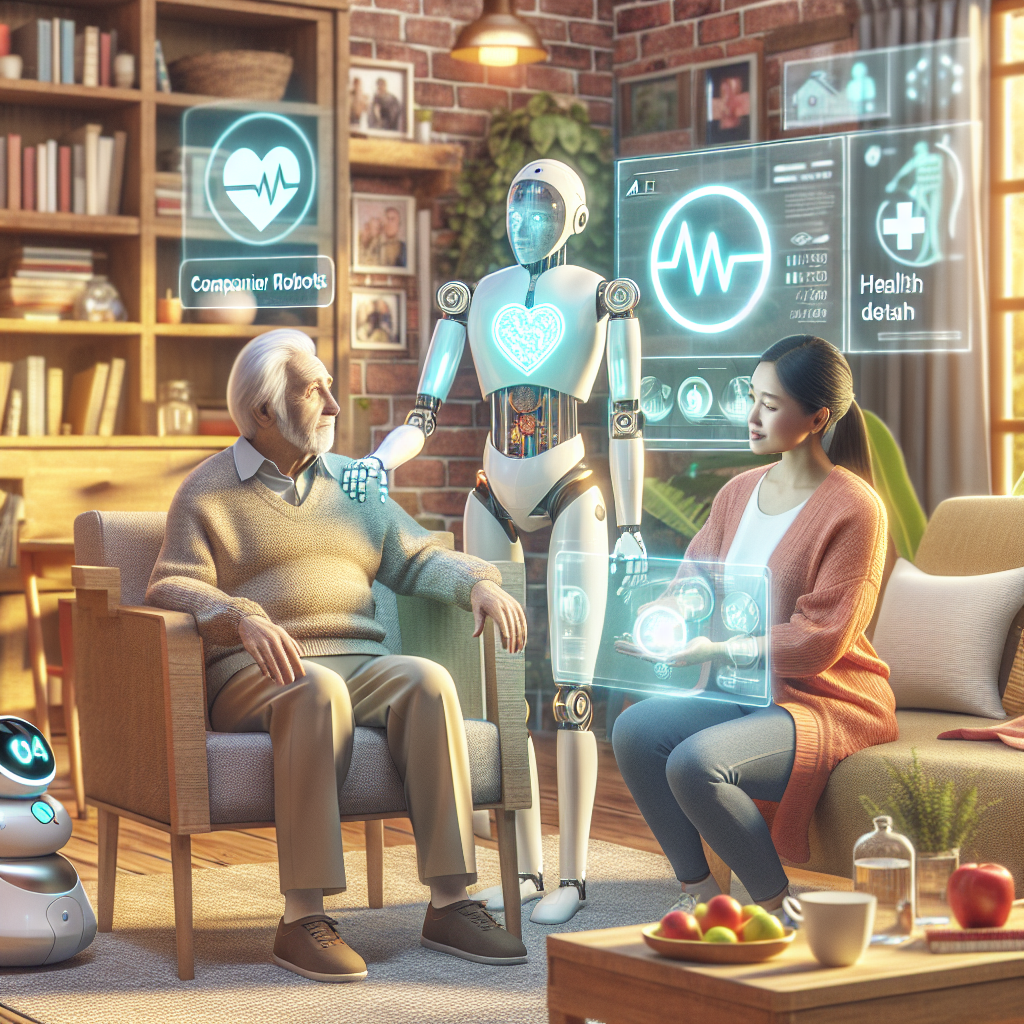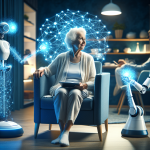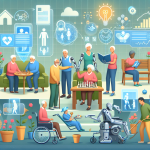[ad_1]
Advancements in artificial intelligence (AI) technology have paved the way for innovative solutions in various industries, including healthcare. One of the areas that have benefited greatly from AI innovations is elderly care. With the global population aging rapidly, the demand for elderly care services is on the rise. AI-powered solutions such as companion robots and virtual assistants have emerged as game-changers in providing support and companionship to the elderly. In this article, we will explore the various AI innovations in elderly care and discuss their impact on improving the quality of life for seniors.
Companion Robots
Companion robots are AI-powered devices designed to provide assistance and companionship to the elderly. These robots are equipped with sensors, cameras, and microphones that enable them to interact with their users and perform a variety of tasks. Some of the common features of companion robots include:
– Reminders for medication and appointments
– Assistance with everyday tasks such as meal preparation and housekeeping
– Entertainment and companionship through conversation and games
Companion robots have been shown to reduce feelings of loneliness and isolation among seniors, as well as improve their overall well-being. These robots can also serve as a safety net for seniors living alone, as they can alert healthcare providers or family members in case of an emergency.
Virtual Assistants
Virtual assistants are AI-powered software programs that can perform tasks or services for users through voice commands. In the context of elderly care, virtual assistants have been developed to provide support and information to seniors. Popular virtual assistants such as Amazon’s Alexa and Google Assistant can help seniors with a variety of tasks, including:
– Setting reminders for medication and appointments
– Providing weather updates and news
– Playing music or audiobooks
– Answering questions and providing information
Virtual assistants can help seniors stay organized and connected, as well as provide entertainment and mental stimulation. These AI-powered tools are becoming increasingly popular in elderly care settings due to their user-friendly interfaces and versatility.
AI-Powered Monitoring Systems
AI-powered monitoring systems have revolutionized elderly care by enabling remote monitoring and analysis of seniors’ health and well-being. These systems utilize sensors and wearable devices to collect data on various health indicators, such as heart rate, blood pressure, and activity levels. The data is then analyzed by AI algorithms to detect any abnormalities or patterns that may indicate a health issue.
AI-powered monitoring systems can alert healthcare providers or family members in case of a medical emergency, allowing for timely intervention and treatment. These systems also enable proactive care management by providing insights into seniors’ daily routines and health trends. By leveraging AI technology, elderly care providers can deliver personalized care plans and interventions that cater to the specific needs of each individual.
Conclusion
In conclusion, AI innovations in elderly care are transforming the way we support and assist seniors in maintaining their independence and quality of life. Companion robots, virtual assistants, and AI-powered monitoring systems are just a few examples of the cutting-edge technologies that are revolutionizing the field of elderly care. By leveraging AI technology, we can address the unique challenges faced by aging populations and provide effective solutions that enhance seniors’ well-being and overall health. As the adoption of AI-powered tools continues to grow, we can expect to see further advancements in elderly care that prioritize personalized and proactive approaches to supporting seniors in their daily lives.
FAQs
Q: Are companion robots safe for elderly individuals?
A: Yes, companion robots are designed with safety features that prioritize the well-being of their users. These robots are equipped with sensors and monitoring capabilities that allow them to detect and respond to potential risks or emergencies. Additionally, companion robots are programmed to follow strict safety protocols to ensure the safety of elderly individuals.
Q: How can virtual assistants benefit seniors in their daily lives?
A: Virtual assistants can benefit seniors in a variety of ways, including providing reminders for medication and appointments, offering entertainment and mental stimulation, and assisting with everyday tasks. These AI-powered tools can help seniors stay organized, connected, and engaged, ultimately enhancing their quality of life.
Q: What are some of the challenges associated with AI innovations in elderly care?
A: Some of the challenges associated with AI innovations in elderly care include privacy concerns, data security issues, and user acceptance. It is important for developers and providers of AI-powered solutions to address these challenges and prioritize the safety and well-being of seniors.
[ad_2]


